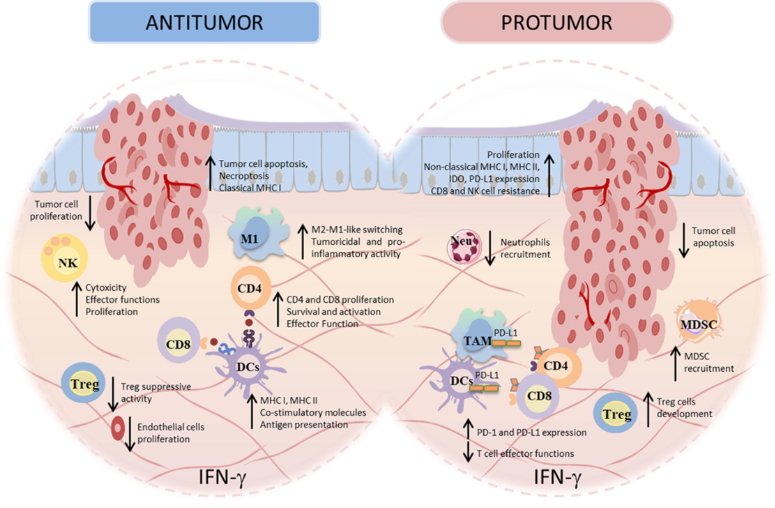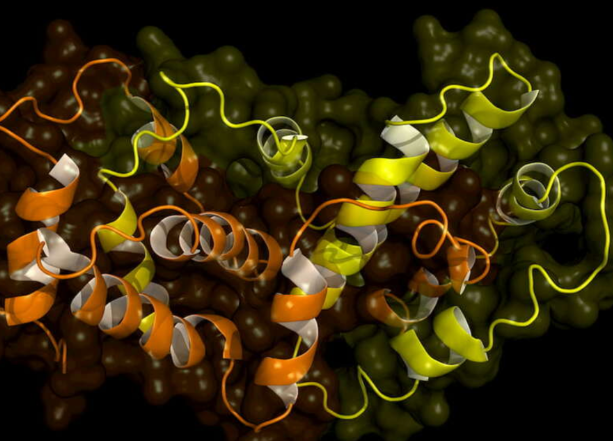Today the immunotherapy succeeds in providing benefit to cancer patients and in some cases leading to complete tumor elimination. However, there are some exceptions, in fact some patients do not respond to immunotherapy; this stimulates researchers to define more and more finely the borderline cases for the application of such treatment.
In 1980 the interferon gamma (IFNγ), a molecule belonging to the cytokine family was formally identified.
The IFNγ plays an important role in various diseases, such as cancer. Initially, IFNγ was thought to have only antitumor effects, and studies in this direction discovered the cytotoxic effects of IFNγ on cancer cells, which were thus eliminated.
Later the pro-tumor effects of IFNγ also emerged. It was discovered that IFNγ promotes the expression of several inhibitory molecules and this contributing to uncontrolled proliferation.
This dual nature suggests that this molecule may play a role in the responsiveness or otherwise to immunotherapy.
Many cancer immunotherapy and chemotherapy treatments induce IFNγ production by various cell types, such as activated T cells and Natural Killer cells.
In this short article, we will review the paper published on June 21, 2021 on “Nature” in which the different effects of IFNγ in the tumor microenvironment (TME) were analyzed and IFNγ-producing cells were reviewed.
In this first part we will focus on IFNγ and its role in the TME and in the second part we will review some types of IFNγ-producing immune cell.
THE ROLES OF IFNγ:

Although IFNγ has direct cytotoxic effects on cancer cells, its therapeutic application is not currently possible because even healthy cells implement IFNγ-related cellular responses.
This means that it potentially has cytotoxic effects on antitumor immune cells as well. Therefore, cancer immunotherapies that induce IFNγ production have the undesirable potential to aggravate the nature of the tumor.
All nucleated cells can respond to IFNγ, so its effects are complex and depend on the balance between:
- The antitumor signaling: This cytokine mediates tumor cell killing, the proliferation, and the immune cell activation. Thus it acts as an auxiliary of the immune system. IFNγ was initially named “macrophage activation factor” because of its role in driving classical macrophage activation, that is toward a proinflammatory and antitumorigenic role. In this case, we are talking about “M1″-type macrophages. M1 macrophages have greater surveillance activity toward the tumor.
- Pro-tumor signaling: In this case such interferon promotes the formation of new blood vessels (angiogenesis), stimulates the proliferation of tumor cells and inactivates the immune system, a mechanism known as immunosuppression; it acts as an enemy of the immune system.
In the future, it may be possible to develop more personalized approaches to direct cancer immunotherapy, based on IFNγ, toward exclusively antitumor effects.
THE SECOND PART:
https://www.onkologik.com/en/the-two-roles-of-interferon-γ-part-2/
SOURCE:




